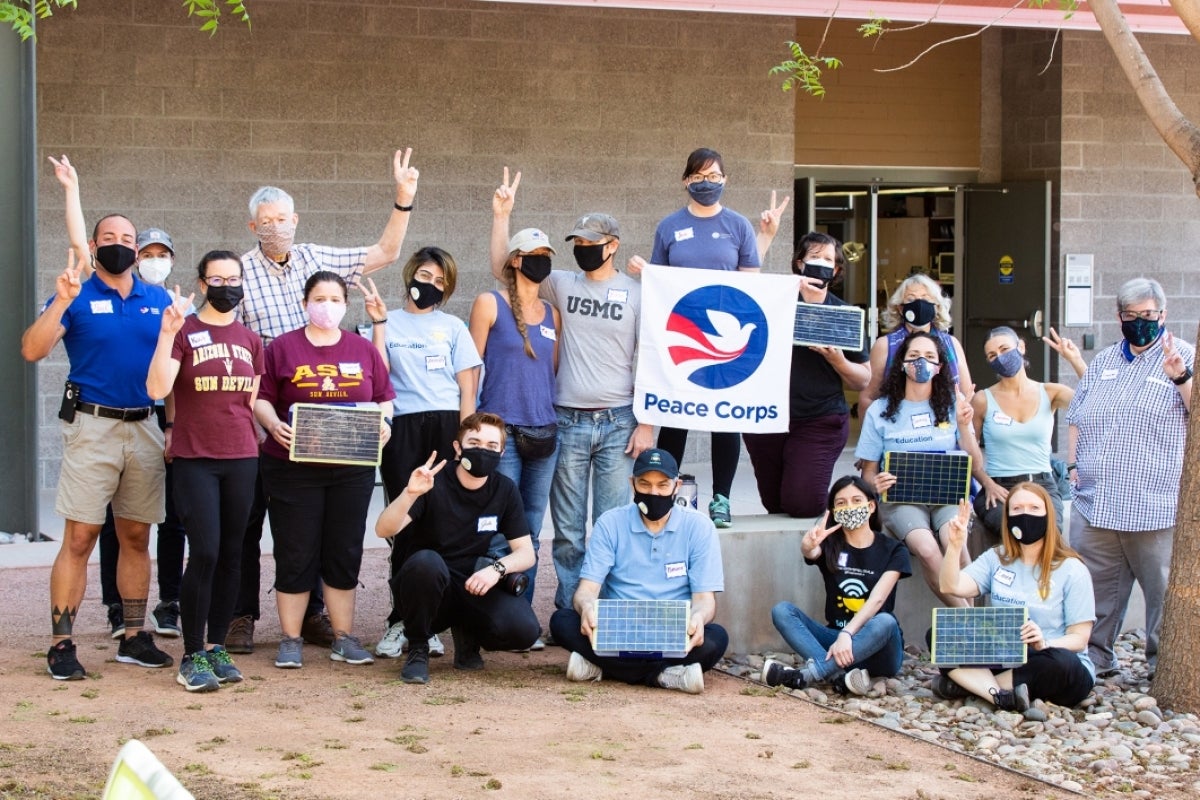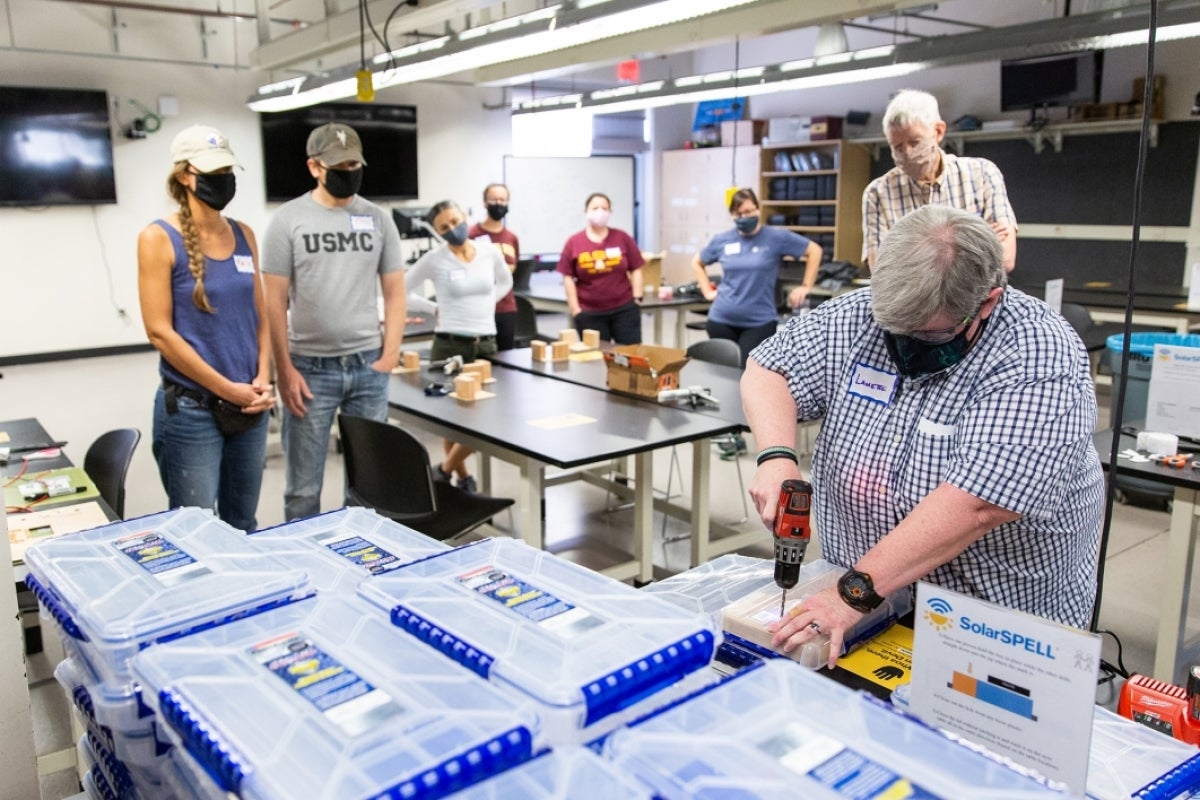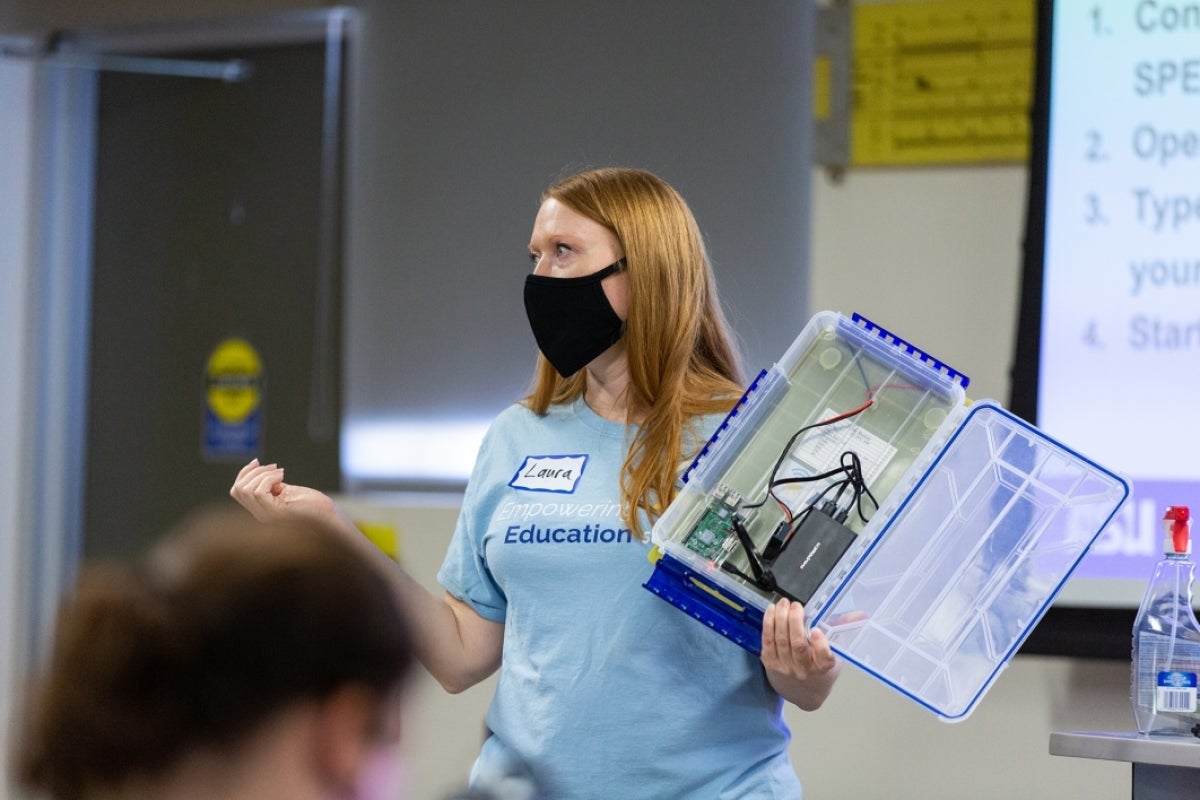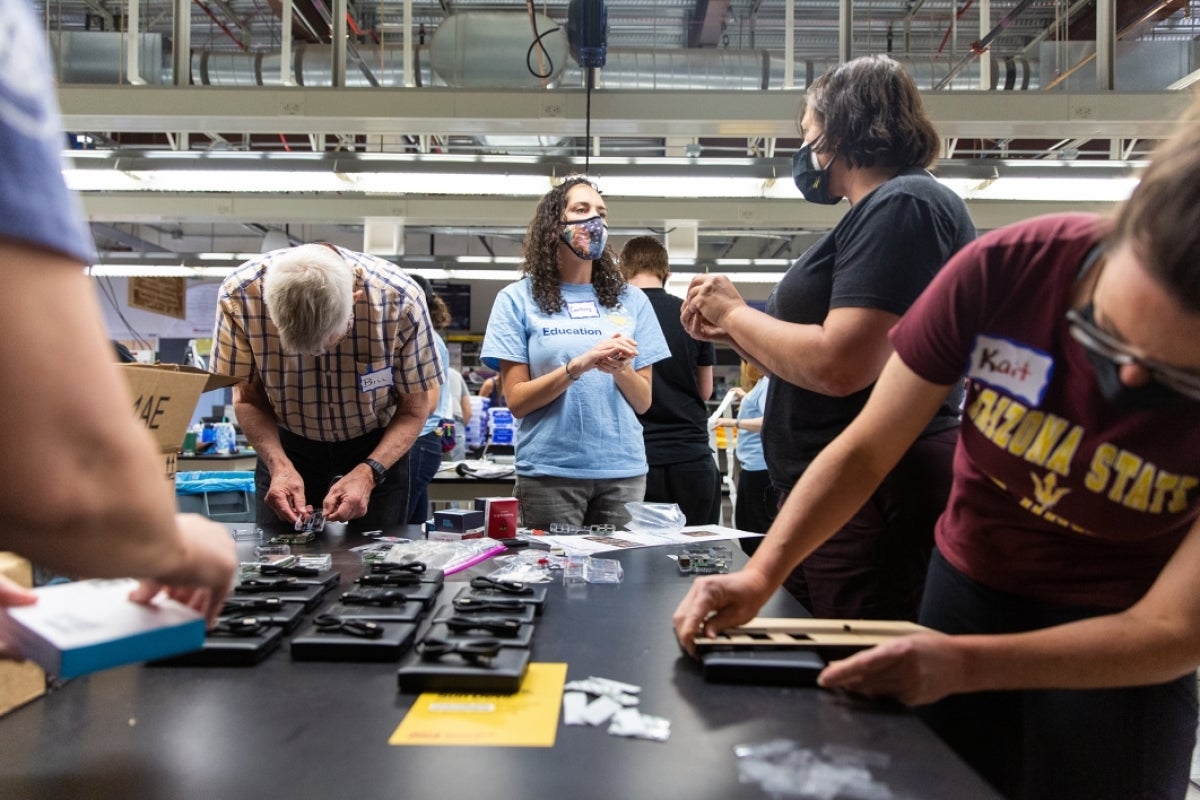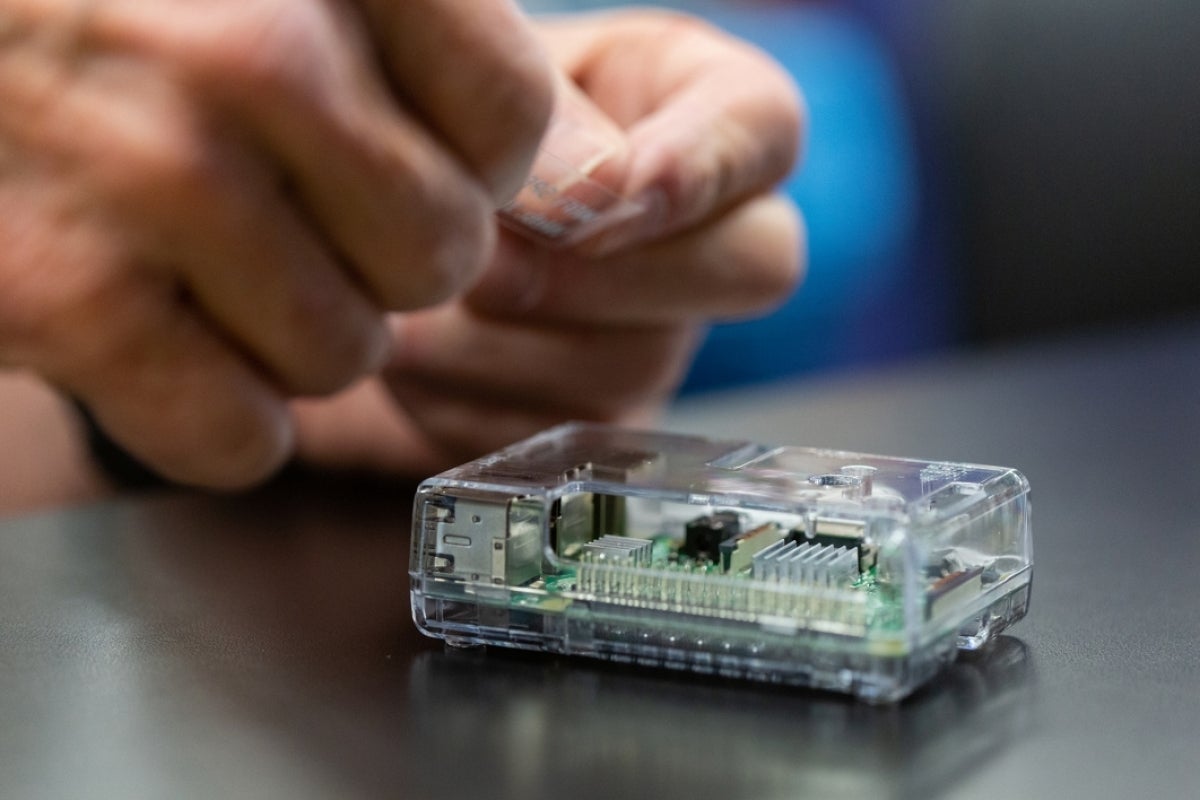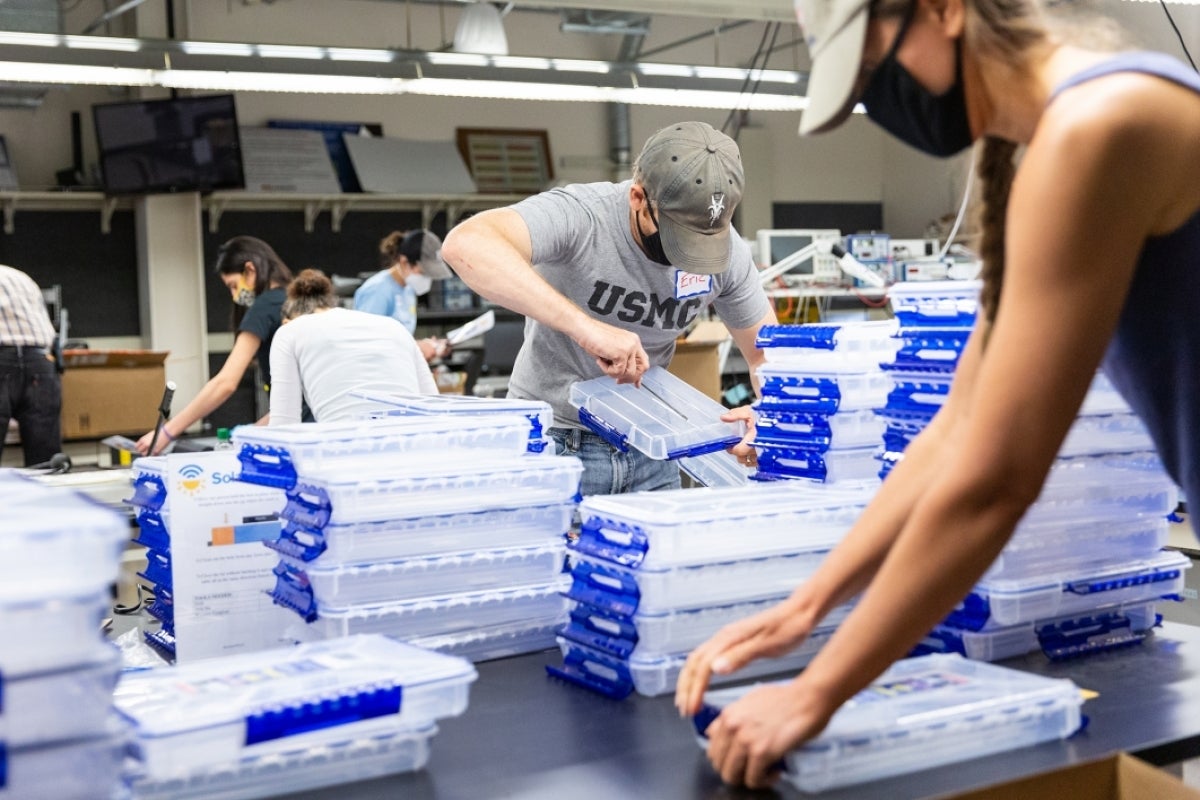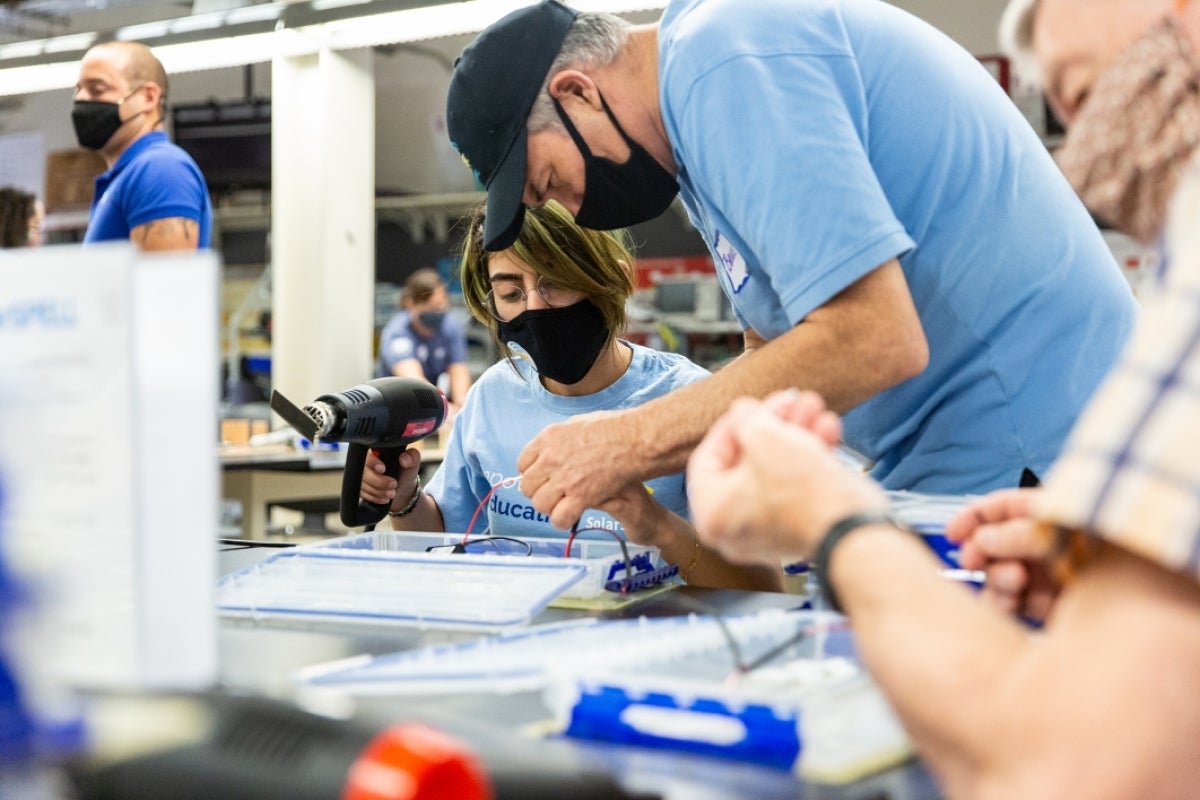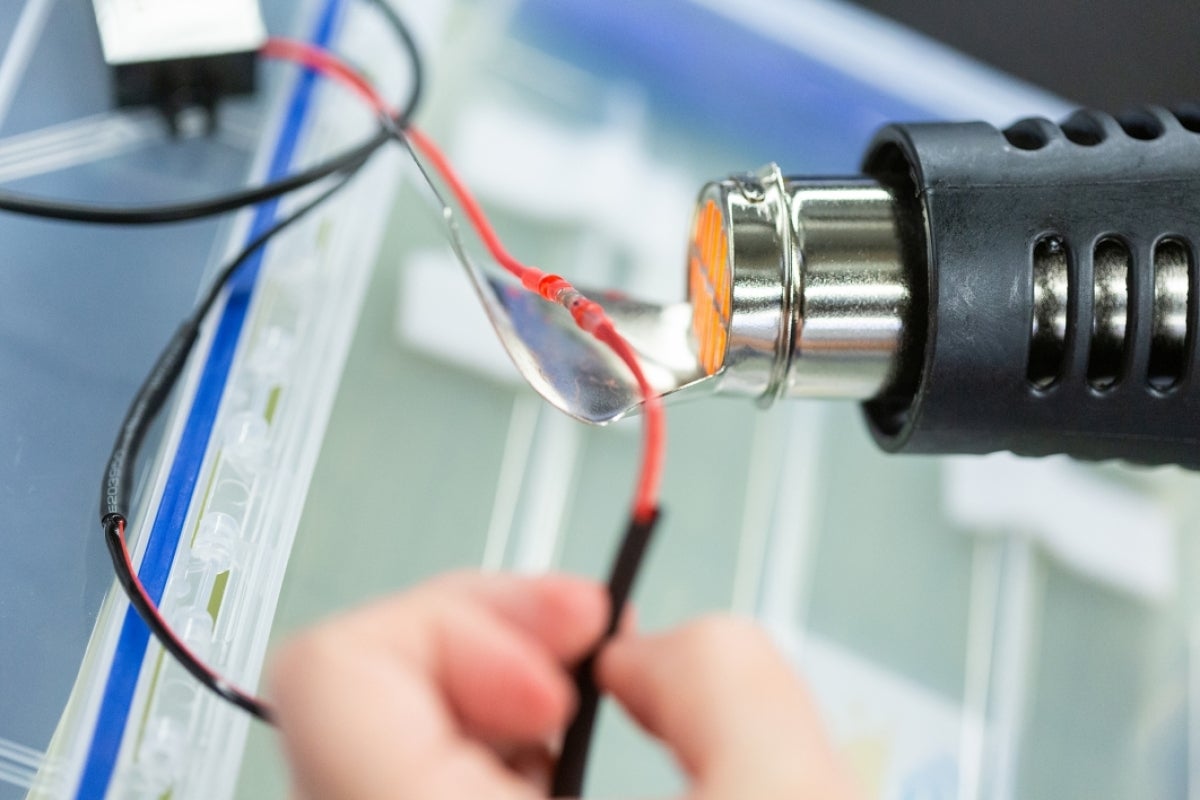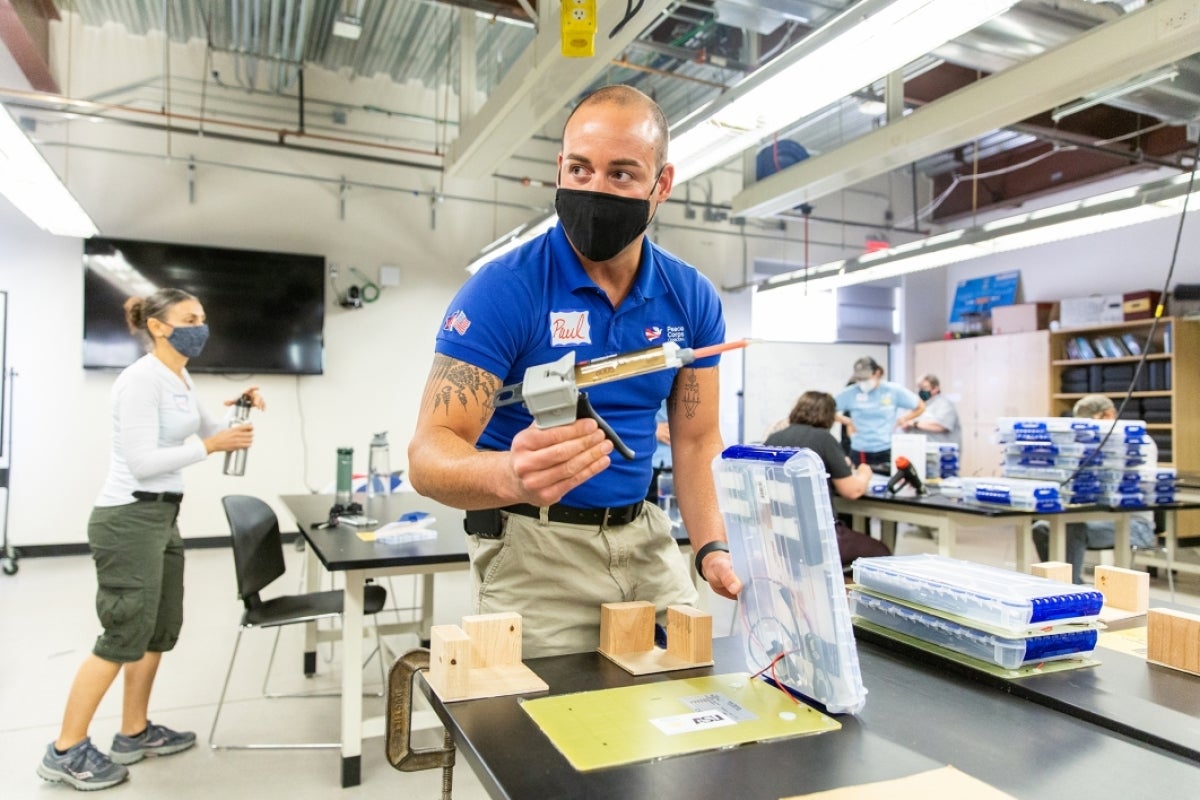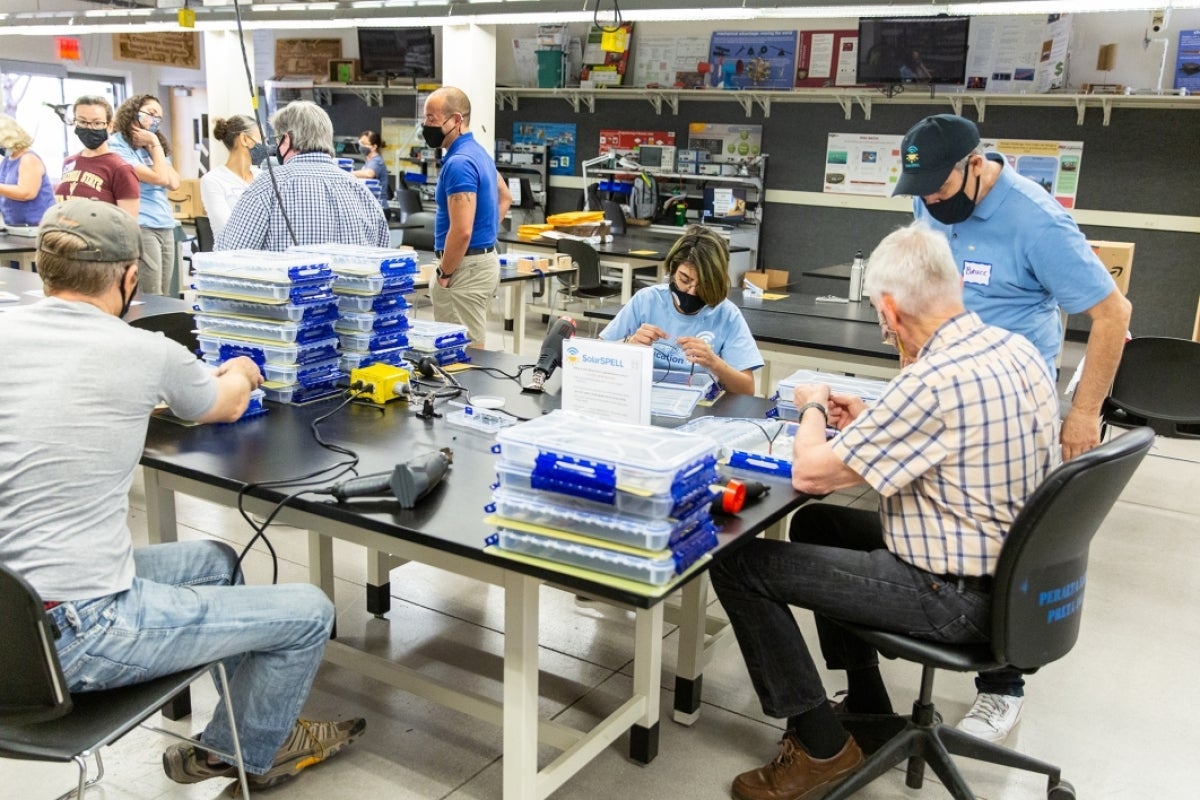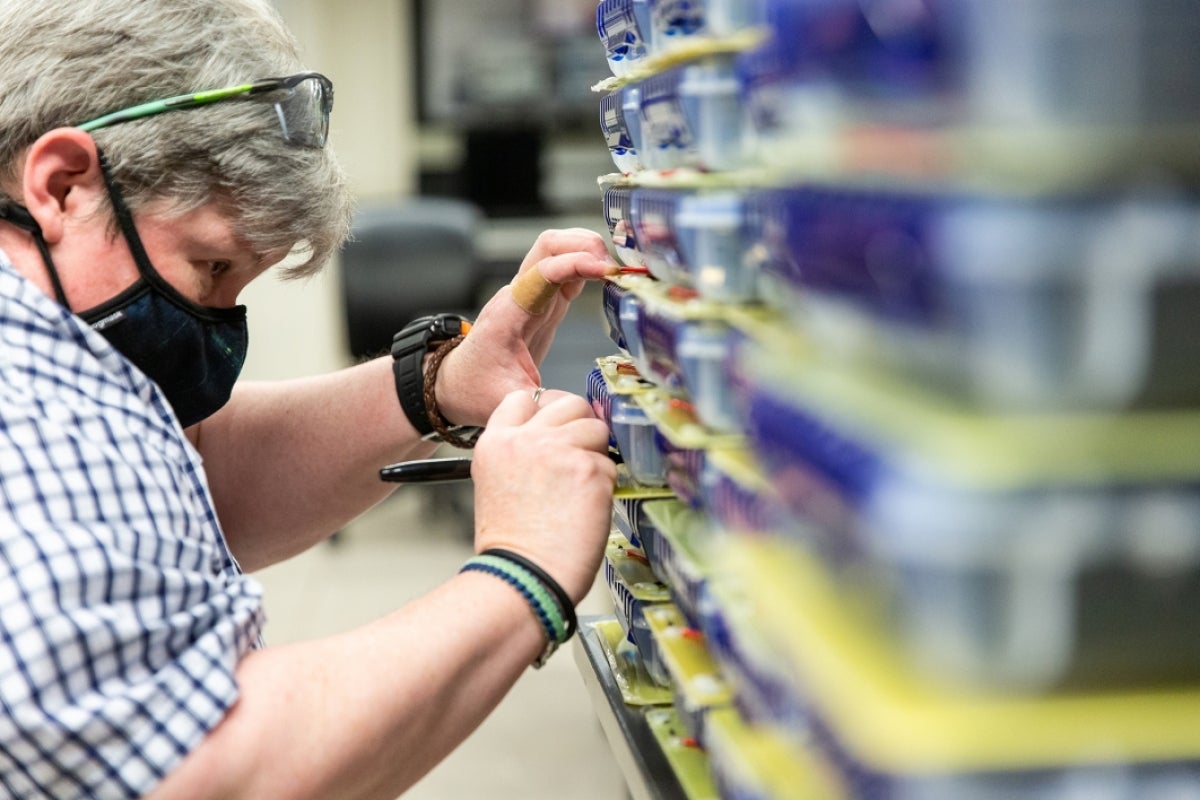Volunteers from the Phoenix Peace Corps Association and the Arizona State University community came together April 3 to build dozens of portable, digital SolarSPELL libraries. The small devices are powered by a solar panel connected to a rechargeable battery and a tiny computer built by Raspberry Pi. The small containers cast a Wi-Fi signal that allows any user to connect a smartphone, tablet or computer in areas with no telecommunciation infrastructure, and the libraries are loaded with relevant, localized educational information.
The batch of devices assembled and tested at the Polytechnic campus — the first build day since the pandemic began — are destined for an Ethiopian refugee community; future build days will focus on building the libraries for Peace Corps partnerships so serving Peace Corps volunteers can carry them to communities worldwide and further their work.
SolarSPELL, which is short for Solar Powered Educational Learning Library, is a student-centered initiative hosted at ASU and is working in partnership to create these small Wi-Fi libraries that can be utilized in remote areas that may be without reliable power sources. Learn more about how it's transforming global education.
More Arts, humanities and education

ASU professor, alum named Yamaha '40 Under 40' outstanding music educators
A music career conference that connects college students with such industry leaders as Timbaland. A K–12 program that incorporates technology into music so that students are using digital tools to…

ASU's Poitier Film School to host master classes, screening series with visionary filmmakers
Rodrigo Reyes, the acclaimed Mexican American filmmaker and Guggenheim Fellow whose 2022 documentary “Sansón and Me” won the Best Film Award at Sheffield DocFest, has built his career with films that…

Pen Project helps unlock writing talent for incarcerated writers
It’s a typical Monday afternoon and Lance Graham is on his way to the Arizona State Prison in Goodyear.It’s a familiar scene. Graham has been in prison before.“I feel comfortable in prison because of…

